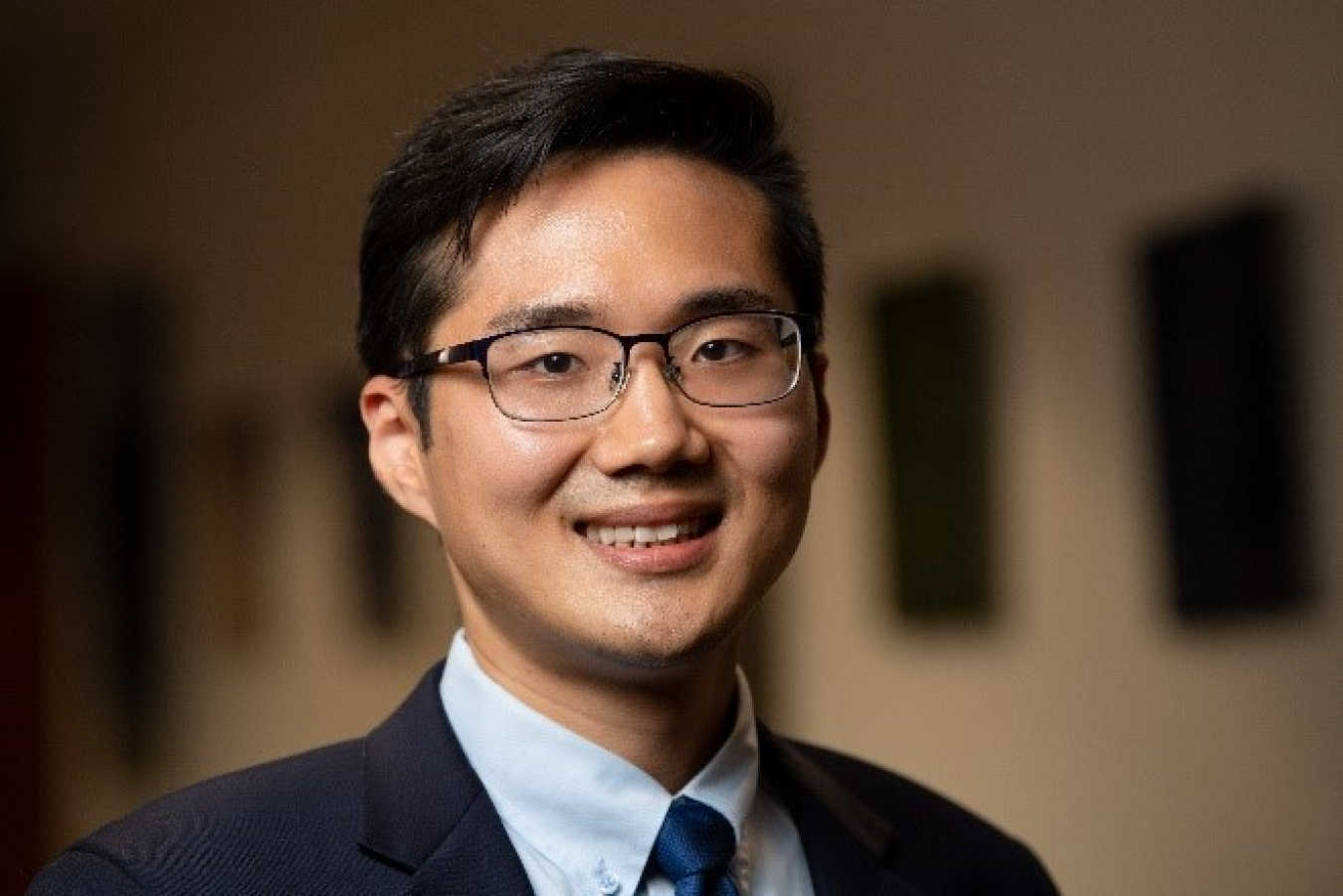Meet Benjamin Lee. He was named after Benjamin Franklin, who is still a role model as he tries to combine his knowledge of science, policy, and diplomacy to advance NNSA's nonproliferation mission.
National Nuclear Security Administration
May 19, 2023
How do you support NNSA?
I am a NNSA graduate fellow working for the Office of Nuclear Smuggling Detection and Deterrence. My office works with more than 80 countries around the world to strengthen their capabilities to detect and interdict smuggled nuclear or radioactive materials. I help foreign affairs specialists with project management, international engagements, and other program work.
What is your personal or cultural background, and how has that shaped you and your approach to your career?
I am a second generation Korean American keenly interested in U.S.-China relations. From a young age, I learned about how the Korean War affected my family and that sparked my interest in international security and in U.S.- China relations. Spending several years of my youth in South Korea also gave me an opportunity to learn about the challenges of nuclear nonproliferation early on, as North Korea withdrew from the Treaty on the Non-Proliferation of Nuclear Weapons and began to test nuclear weapons and long range missiles while I lived in Seoul.
What did you study in school and how did it impact you personally and professionally?
I studied international studies and Chinese at the University of Washington in Seattle. While in college, I had the opportunity to study abroad in Taiwan as a Boren scholar and learn more about the intricacies of cross-Strait relations. After graduation, I spent time in China as a Fulbright Scholar and researched China’s perspective on cross-Strait relations. In graduate school, I majored in International Economics and Strategic Studies at the Johns Hopkins School of Advanced International Studies, where I took several courses on nuclear nonproliferation. My experience in China and coursework on nuclear nonproliferation deepened my interest in pursuing a career in the Nuclear Security Enterprise and think about how I can contribute to U.S. policy toward China in the years to come.
What led you to a career in nuclear security?
My instructor for the nuclear nonproliferation course thought I would be a great fit for the NNSA Graduate Fellowship Program and encouraged me to apply. I thought it was an amazing opportunity to combine my interest in nuclear issues, foreign affairs, and U.S.-China relations and launch a career in the U.S. government. So I applied and was lucky enough to be selected.
What is the best part about your job?
Working with a group of smart, passionate, and dedicated people. Since I started last June, my office has welcomed me to their team and many people have guided my professional growth and success at NNSA. I have found several mentors in my office who have gone above and beyond their normal duties to teach and train me to be a contributing member of the team.
My father named me Benjamin after Benjamin Franklin, who remains my role model up to this date. I aspire to be a Renaissance Man like the great founding father as I try to combine my knowledge of science, policy, and diplomacy to advance NNSA’s mission.
What is your proudest accomplishment while working at NNSA?
In January, I had a opportunity to plan and travel to Taiwan for a commissioning ceremony at the Port of Kaohsiung with the director of my office. I was able use my Chinese fluency and experience in Taiwan to contribute to a successful ceremony that celebrated the partnership between Taiwan Customs and my office. It reminded me of how far I have come.
Tell us something interesting about yourself.
My father named me Benjamin after Benjamin Franklin, who remains my role model up to this date. I aspire to be a Renaissance Man like the great founding father as I try to combine my knowledge of science, policy, and diplomacy to advance NNSA’s mission.
Do you have any highlights from your time supporting NNSA?
One is participating in the Office of Global Material Security's strategic review on China. I was able to use my knowledge of U.S.-China relations and contribute to a white paper that examined how the office should compete and cooperate with China in the global material security space. The review made me feel like I was really making a difference in my office's approach to China.
What advice would you have for anyone interested in a career in nuclear security?
Never underestimate the human element. When I started working at NNSA, I thought understanding science and technology would be the most important part of my work. But it turns out that understanding my teammates from different backgrounds and working with them effectively is the most important skill. Navigating different personalities, work styles, and exercising leadership can be a force multiplier that brings together wisdom and talent to solve problems that science or technology alone cannot solve.
Why do you think diversity and inclusion is important to your profession?
Diversity and inclusion drive creativity and innovation. Diversity allows for rigorous debate in the marketplace of ideas and inclusion ensures that everyone feels empowered to voice their opinion. This process, I believe, allows us to find the best solution for complicated challenges in the 21st century.

